Online Directory Websites FAQ
Answering the most common questions about Online Business Directory websites.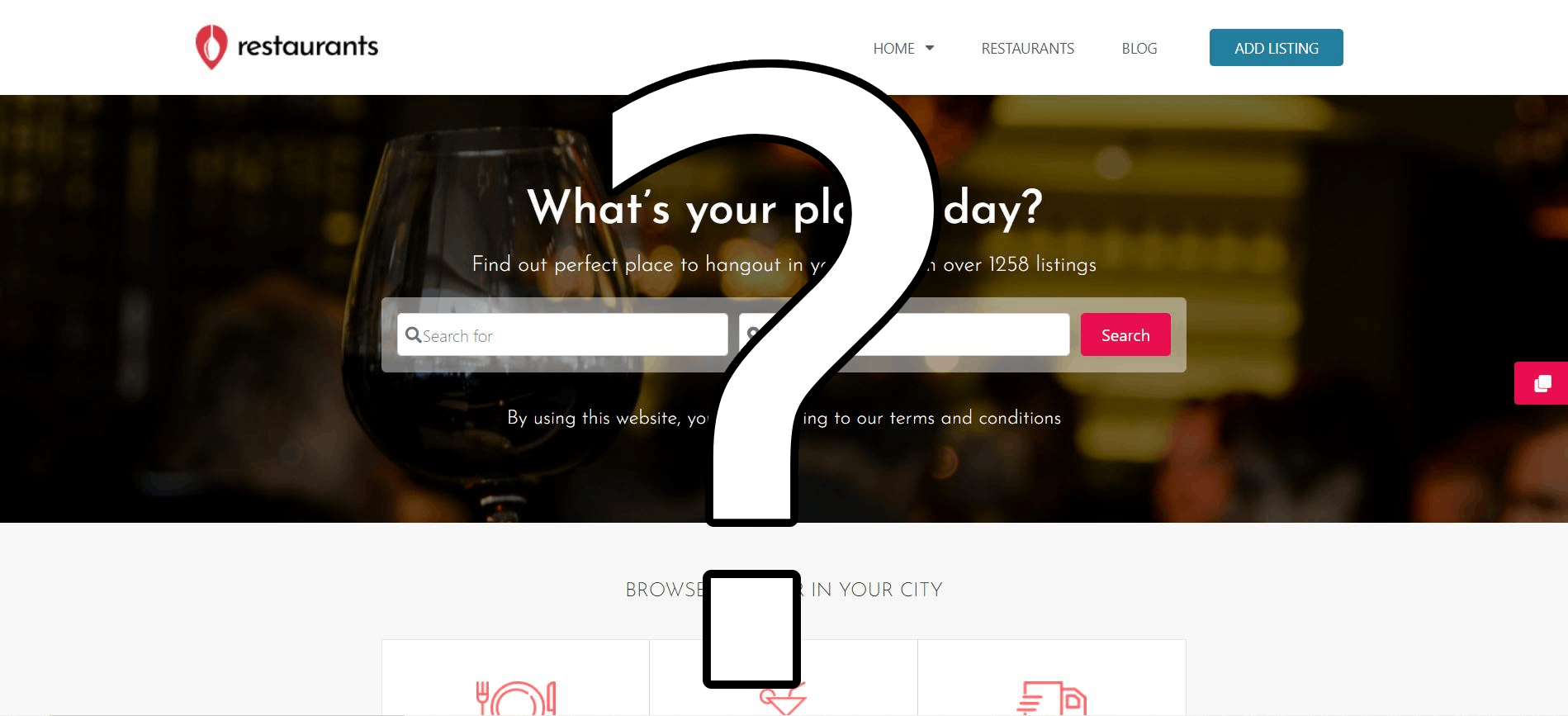
Online directory websites are a valuable resource for individuals and businesses alike.
These websites provide a comprehensive list of businesses, organizations, and individuals, often organized by category or location.
This blog post will answer some of the most frequently asked questions about online directory websites.
Whether you’re looking for information or want to increase your visibility online, this post will provide the answers you need.
Let’s get started!
1. What is a business online directory website?
A business online directory website is a website that uses directory software to create an online directory.
The final goal is to list businesses, often organized by category or location.
These directories provide information about the products or services offered by the businesses listed, as well as contact details and other relevant information.
Business directory websites help people find the information they need about businesses in their area or within a specific industry.
They can also be a valuable tool for businesses looking to increase their visibility and attract new customers.
2. What is business directory software?
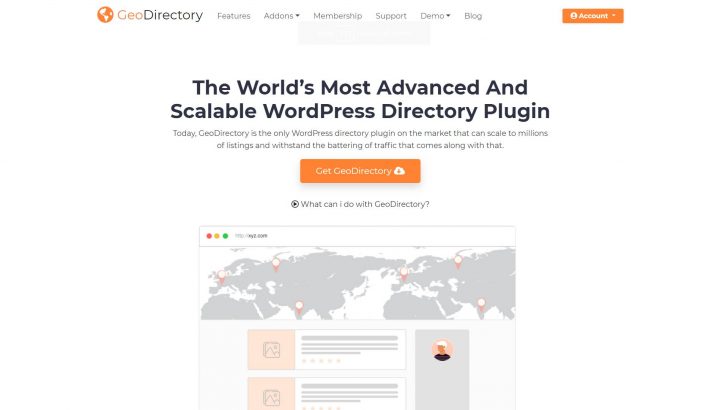
A business directory plugin is a type of software that allows users to create and manage an online directory website of businesses, organizations, or individuals.
This type of software typically includes features such as adding, editing, and deleting listings, categorizing listings by location or industry, and searching for listings based on various criteria.
Some business directory software may also include additional features such as ratings and reviews, payment processing, and integration with other tools or platforms.
Business directory software is indispensable for individuals or businesses creating and managing an online directory website.
3. What is a web directory example?
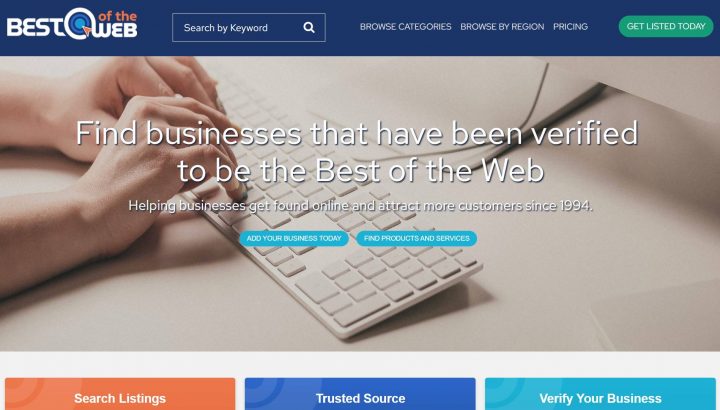
A web directory is an online directory that lists websites, often organized by category or subject.
A web directory example could be a directory that lists websites related to travel, such as hotels, airlines, and travel agencies.
The directory would provide brief descriptions of the websites and their services and links to them.
This type of directory can be helpful for people looking for information on a specific topic, such as travel, as it provides a curated list of websites in one place.
Other examples of web directories include directories of online stores, blogs, and forums.
Here are some specific examples of web directories:
- Yahoo! Directory: This was one of the oldest and most well-known web directories. It was organized into categories and subcategories, making it easy to find websites on various topics. The directory was shut down in 2014.
- DMOZ (The Open Directory Project): This directory was a collaborative effort by a community of editors who work to categorize and list websites on a wide range of topics.
- Best of the Web: This directory focuses on high-quality websites and provides brief descriptions of the sites to help users find the information they need.
- JoeAnt: This directory is organized into categories and subcategories and allows users to rate and review the websites listed.
- WebWorldIndex: This directory is a human-edited directory that lists websites on a wide range of topics. It also allows users to submit their websites for inclusion in the directory.
- Business.com: This directory focuses on businesses and provides information on various industries and companies. It also offers tools and resources for businesses looking to increase their online presence.
4. Is the online directory website business model profitable?
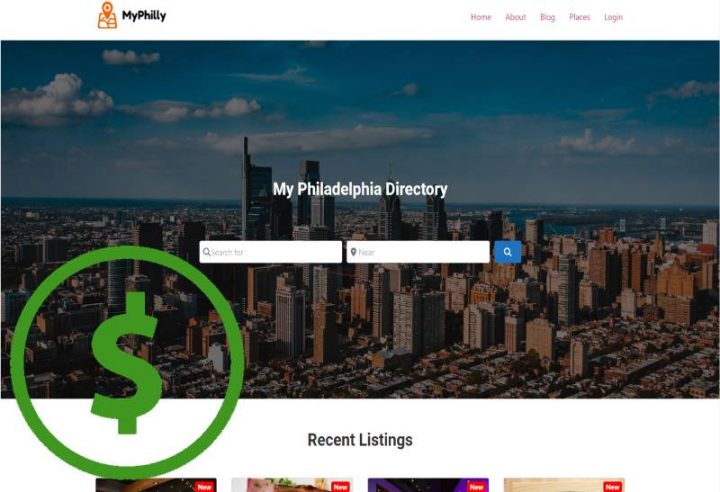
It can be profitable if the webmaster successfully promotes the directory, reaches a good distribution level, and generates consistent traffic.
The online directory website business model can be profitable only if it is well-managed and successfully monetizes its traffic and user base.
As with any business, the level of profitability will depend on several factors, including the size of the user base, the quality of the directory’s content, and the effectiveness of its monetization strategies.
To be profitable, online directory websites must attract a sufficient number of users and generate enough revenue through advertising, subscriptions, or other sources to cover its costs and generate a profit.
Additionally, the directory must compete with other directories in the market and provide value to its users to retain them and continue to grow its user base.
Mastering SEO (search engine optimization) is the surest way to build a profitable business around an online directory website.
5. How do online business directories make money?

Online business directories can make money through various monetization techniques.
One way is through advertising, where the directory sells ad space on its website to businesses looking to increase their visibility.
Another way is through subscription fees, where users must pay a fee to access certain features or information on the directory.
Additionally, some directories may offer premium listings, where businesses can pay to have their information prominently displayed or highlighted in the directory.
Another way for directories to make money is through commissions for leads.
In this case, they earn a commission for each customer referred to a business through the directory.
Overall, online business directories can generate revenue through one or a combination of these methods.
6. How do you start a profitable online directory?

To start a profitable online directory, you must carefully plan and execute a sound business strategy.
Here are some steps to follow:
- Identify a specific niche or market to focus on. This will help you to differentiate your directory from others and attract a targeted audience.
- Develop a comprehensive list of businesses, organizations, or individuals to include in your directory. This will be the core of your directory and should be updated regularly to ensure it is accurate and up-to-date.
- Create a user-friendly and engaging website to host your directory. This will be your business’s face, so make it visually appealing and easy to navigate.
- Implement effective monetization strategies. This could include selling advertising space, offering subscription plans, or offering premium listings.
- Promote your directory to attract users and increase visibility. This could include marketing efforts such as search engine optimization (SEO), social media marketing, or content marketing.
- Monitor your performance and make adjustments as needed. This could include regularly updating your content, improving your website, or refining your monetization strategies.
This is the best way to create a profitable online directory that provides value to its users and generates revenue for your business.
7. How do you create a successful directory?
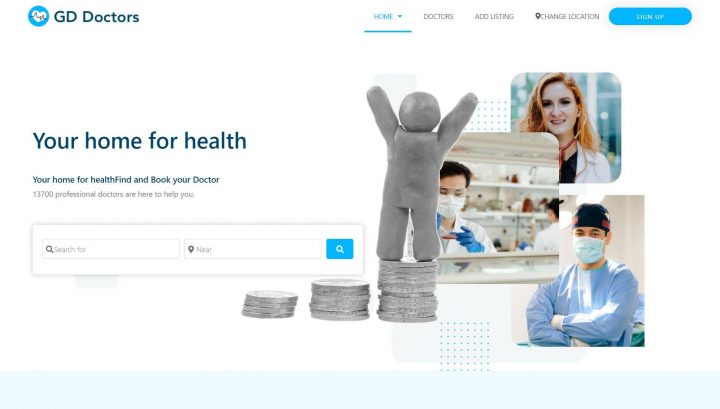
The key to creating a successful directory is to focus on providing value to your users.
This means offering a comprehensive and up-to-date list of businesses, organizations, or individuals, along with relevant information and details.
It also means creating a user-friendly and engaging website that is easy to navigate and search.
By providing value to your users, you will be able to attract and retain a loyal audience, which is essential for the success of your directory.
In addition to providing value to your users, building a solid brand is essential.
This means creating a consistent and professional image for your online directory website.
This could include developing a unique logo and color scheme, creating engaging and informative content, and promoting your directory through various channels.
By building a solid brand, you will be able to establish your directory as a trusted and reliable source of information, which will help to attract and retain users.
8. How much should you charge for a directory listing?

The amount you charge for a directory listing will depend on several factors, including the size and scope of your directory, the value of the listing to the business, and the competition in the market.
In general, you should aim to charge a fair price that reflects the value of the listing to the business and allows you to generate a profit.
One approach is to offer different pricing tiers for listings with different levels of visibility and features.
For example, you could offer a basic listing for free or a low fee, allowing businesses to upgrade to a premium listing for a higher price.
This allows businesses to choose the level of exposure and features that best meets their needs and budget.
Regularly reviewing and adjusting your pricing is also essential to ensure it remains competitive and fair.
This could involve conducting market research to understand the pricing of similar directories and regularly soliciting feedback from your customers to ensure they are satisfied with the value they receive for their listing fee.
Overall, the key to setting a fair price for directory listings is to assess the value of the listing to the business carefully and regularly review and adjust your pricing to reflect market conditions and customer feedback.
9. How do I promote my website directory?

There are many ways to promote your website directory and increase its visibility.
Here are some tips:
- Optimize your website for search engines. This involves using keywords and other techniques to improve your website’s ranking in search engine results pages (SERPs), making it more likely that users will find your directory when searching for relevant terms.
- Use social media to promote your directory. Share links to your directory and its content on social media platforms such as Facebook, Twitter, and LinkedIn to reach a wider audience and drive traffic to your website.
- Engage with your target audience. Comment on relevant blog posts and forums, join industry groups and associations and attend industry events to raise awareness of your directory and its value proposition.
- Offer valuable content. In addition to listing businesses, organizations, and individuals, consider offering articles, blog posts, videos, or other content that provide value to your target audience. This can help to establish your directory as a trusted and authoritative source of information.
- Collaborate with other websites and directories. Consider partnering with other websites or directories that serve similar audiences to cross-promote each other’s content and drive traffic to your website.
By following these tips, you can effectively promote your website directory and increase its visibility and reach.
10. Are directories good for SEO?

Yes, directories can be good for SEO.
Search engines crawl and index websites, including directories.
Good quality directories can help improve a website’s visibility in search engine results pages (SERPs) by providing additional inbound links.
This can help to improve the website’s search engine ranking and make it more likely that users will find the website when searching for relevant terms.
In addition, directories can provide valuable information and context about the website and its content, which can help search engines understand its relevance and authority.
This can improve the website’s ranking and visibility in search engine results.
However, it is essential to note that not all directories are equal in terms of their value for SEO.
Some directories may be more reputable and authoritative than others, providing more value in improving a website’s search engine ranking.
Therefore, it is critical to carefully research and evaluate the directories you consider using for your website’s SEO.
11. How do I sell my business directory?

If you are looking to sell your business directory, there are a few steps you can take to maximize its value and attract potential buyers. Here are some tips:
- Gather all relevant information and documents. This could include financial statements, user data, and contracts with advertisers or other partners.
- Create a detailed and professional business plan that outlines the current state of your directory and its future potential.
- Consider engaging the services of a business broker or advisor who can help you to find potential buyers and negotiate a sale. This would include listing on sites like Flippa.com, MicroAcquire, or Empire Flippers.
- Reach out to potential buyers, such as other directory websites or businesses in related industries, and present your directory and its value proposition.
- Negotiate the terms of the sale, including the purchase price and any ongoing obligations or commitments.
- Finalize the sale and transfer ownership of the directory according to the terms of the agreement.
By executing this strategy, you can effectively sell your business directory and maximize its value.
Would you like us to answer more questions about Online Business Directories? Ask your questions in the comment below, and we will update this article!
You can get GeoDirectory here today:
Newsletter - Stay Updated!
Get the latest news, tips, and exclusive content directly in your inbox.